Are Pork Chops Good For Dogs? The Complete Guide
Pork chops are a common ingredient in many human diets, but are they suitable for dogs as well? In this comprehensive guide, we’ll explore whether pork chops are good for dogs or bad and provide tips on feeding pork chops safely for dogs if chosen. By the end, you’ll have a clear understanding of the pros and cons of pork chops for dogs.
Introduction to Pork Chops For Dogs
Pork chops are a lean cut of pork that many people enjoy. However, as much as dogs may beg for people’s food at the dinner table, pork chops are not necessarily the best choice for canine companions. While pork chops do provide protein and fat, they also carry some risks if not prepared or portioned properly for a dog’s digestive system.
In this article, we’ll take an in-depth look at the nutritional value of pork chops for dogs, potential health concerns, and recommendations from veterinary experts on feeding pork chops to explore if they can be an occasional part of a balanced canine diet. Our goal is to help readers make an informed decision on this topic and prioritize their dog’s well-being if choosing to share pork chops occasionally as a special treat.
The Nutritional Value of Pork Chops for Dogs
Before diving into potential health concerns, it’s important to understand the nutritional composition of pork chops and what value they could potentially provide to a dog’s diet:
- Protein: Pork chops are a lean source of high-quality protein. Protein is important for tissue growth, cell repair, and energy metabolism in dogs.
- Fat: Pork chops contain a moderate amount of fat, which is an essential macronutrient for dogs. Fat provides calories, carries fat-soluble vitamins, and supports the dog’s skin and coat health.
- Vitamins & Minerals: Pork chops are a good source of several important vitamins and minerals for dogs including niacin, selenium, phosphorus, and zinc.
- Taurine: Pork is a natural source of taurine, an amino acid required for eye health and development in dogs. Deficiency can cause retinal degeneration leading to blindness.
In moderation as part of a balanced diet, pork chops do provide valuable nutrition to a dog. However, there are also some potential downsides to consider before feeding them regularly.
Health Concerns with Feeding Pork Chops to Dogs
While pork chops offer nutritional benefits, there are also some potential health risks associated with feeding them to dogs:
High Fat Content
Pork chops are higher in fat than many other meats like chicken or fish. Too much fat in a dog’s diet can lead to obesity, pancreatitis, and other health issues.
Sodium Content
Depending on how they are prepared for human consumption, pork chops may be higher in sodium than is healthy for dogs. Excess sodium intake has been linked to high blood pressure in some dogs.
Risk of Foodborne Illness
Similar to other raw or undercooked meats, pork chop bones pose a choking and intestinal blockage risk for dogs. Additionally, if not handled or cooked properly, pork can expose dogs to foodborne pathogens like Salmonella or Trichinella parasites.
Allergies
As with any new food, there is a small possibility a dog may develop an allergy or intolerance to pork. Especially if fed in large amounts regularly without prior tolerance testing.
Xenosalicylate Precursor
Some studies suggest pork may contain a compound that dogs can metabolize into xenosalicylate, which can potentially cause stomach upset, vomiting, or diarrhea in sensitive dogs.
Taking all these potential risks into account, pork chops are generally not recommended as a regular part of a dog’s diet unless strictly portioned and under veterinary guidance. Let’s explore some recommendations.
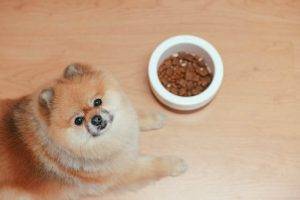
Veterinary Recommendations on Feeding Pork Chops to Dogs
Based on the nutritional analysis and potential health concerns, here are recommendations from most veterinary organizations on feeding pork chops to dogs:
- Pork chops should only be an occasional treat for dogs, not part of their regular diet.
- Only feed small, cooked, fat-trimmed pieces without any seasoning or sauces added.
- Limit portions to no more than 10% of the dog’s daily caloric intake to avoid issues from too much fat or sodium.
- Do not feed any pork chop bones which pose a choking or blockage risk to dogs.
- Gradually introduce small amounts first to test for any potential allergies or intolerances.
- Monitor your dog after any pork chop feeding for signs of GI upset like vomiting or diarrhea.
- Be aware that not all dogs may tolerate pork well due to individual differences.
- Avoid feeding raw or undercooked pork due to foodborne illness risks for dogs.
If portioned and fed appropriately on occasion only, small amounts of cooked pork chop meat can be part of a balanced diet for most dogs. But it’s generally not something recommended as a regular part of a dog’s meal plan.
Alternatives to Pork Chops for Canine Treats
For those wanting to occasionally reward their dog but concerned about pork chop safety, here are some healthier alternatives that are generally safer as dog treats:
- Chicken or turkey – Lean meat high in protein that is easy to digest for dogs.
- Salmon or other fish – High in omega-3 fatty acids and generally easily tolerated by dogs.
- Carrots or green beans – Low-calorie vegetables that are a nutritious snack for dogs.
- Plain yogurt or cottage cheese – Provides calcium and probiotics that support gut and joint health.
- Eggs – A complete source of protein that dogs easily digest.
- Sweet potato or banana – Fruit options lower in calories than others that can count as a treat.
- Boneless, skinless chicken or turkey breast – One of the leanest meats for occasional feeding.
These options are lower in fat/sodium than pork chops and generally pose less risks of developing food intolerances or allergies when fed as occasional incentives for good behavior.
Cooking Pork Chops Safely for Dogs
For those who opt to still occasionally feed small amounts of pork chops to their dogs despite risks, it’s important to always prepare them safely:
- Trim all visible fat from the pork chop before cooking.
- Cook pork chops thoroughly to an internal temperature above 160°F to kill any potential pathogens.
- Shred or dice cooked pork chop into tiny, bite-sized pieces safe for a dog to swallow.
- Do not season with any added salt, sugar, onions, garlic or spices which can be toxic to dogs.
- Only share small cooked pieces and do not feed any bones which splinter when chewed.
- Store leftover cooked pork in an airtight container for up to 3 days in the fridge or freeze for longer term storage.
- Reheat frozen or leftovers until steaming hot before serving to a dog.
- Wash all surfaces the raw pork touched with soap and warm water before and after handling/cooking.
Following food safety guidelines is essential whether feeding pork chops or any other people food to avoid potential illness risks for our canine companions. Diligent cooking and handling is strongly advised if this meat is part of occasional dog feeding.
Interactions with Medications
It’s also important to be aware that pork and its byproducts can interact negatively with some common canine medications if fed together:
- Phenobarbital – A seizure medication where pork intake may interfere with therapeutic blood levels.
- Ivermectin – Certain heartworm preventives contain this and pork intake was linked to increased toxicity risk in collie dogs.
- Nitrofurantoin – An antibiotic where pork byproducts negatively impact drug absorption in some dogs.
To be safe, it’s recommended to discuss any medication protocols your dog may be on with your vet before deciding to regularly incorporate pork chops into their diet. Their intake may need to be spaced separately from medications for best effectiveness.
Summary – Are Pork Chops Good or Bad for Dogs?
In conclusion, while pork chops do provide valuable protein and nutrients, there are also potential health concerns to consider such as:
- High fat and sodium content risks obesity, pancreatitis in large amounts.
- Potential for foodborne illness if pork is undercooked or mishandled.
- Contains a compound metabolized to xenosalicylate which can cause GI upset.
- Risk of dogs developing an intolerance or allergy from regularly eating pork.
Considering these risks outweigh the nutritional benefits, veterinary organizations do not generally recommend pork chops as a regular part of a dog’s diet.
In moderation as an occasional special treat only, small amounts of cooked, fat-trimmed pork chop meat likely poses minimal risks for most dogs. But careful handling and always under veterinary guidance is advised.
Leaner meat alternatives like chicken, salmon or even fruits/veggies are generally safer options and choices vets recommend focusing dog rewards and treats around to protect canine health. But in the end, pet parents should make the choice that feels right for their individual dog’s needs.
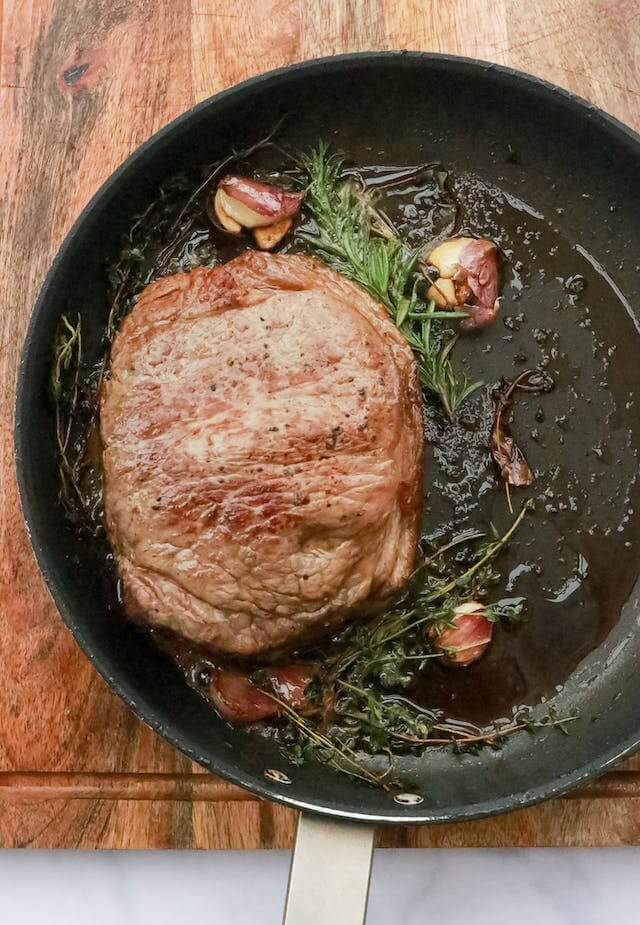
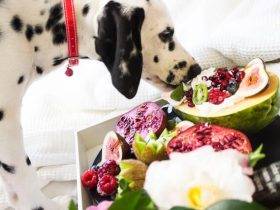

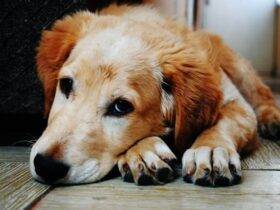

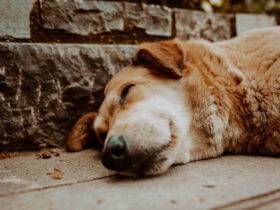
Leave a Reply